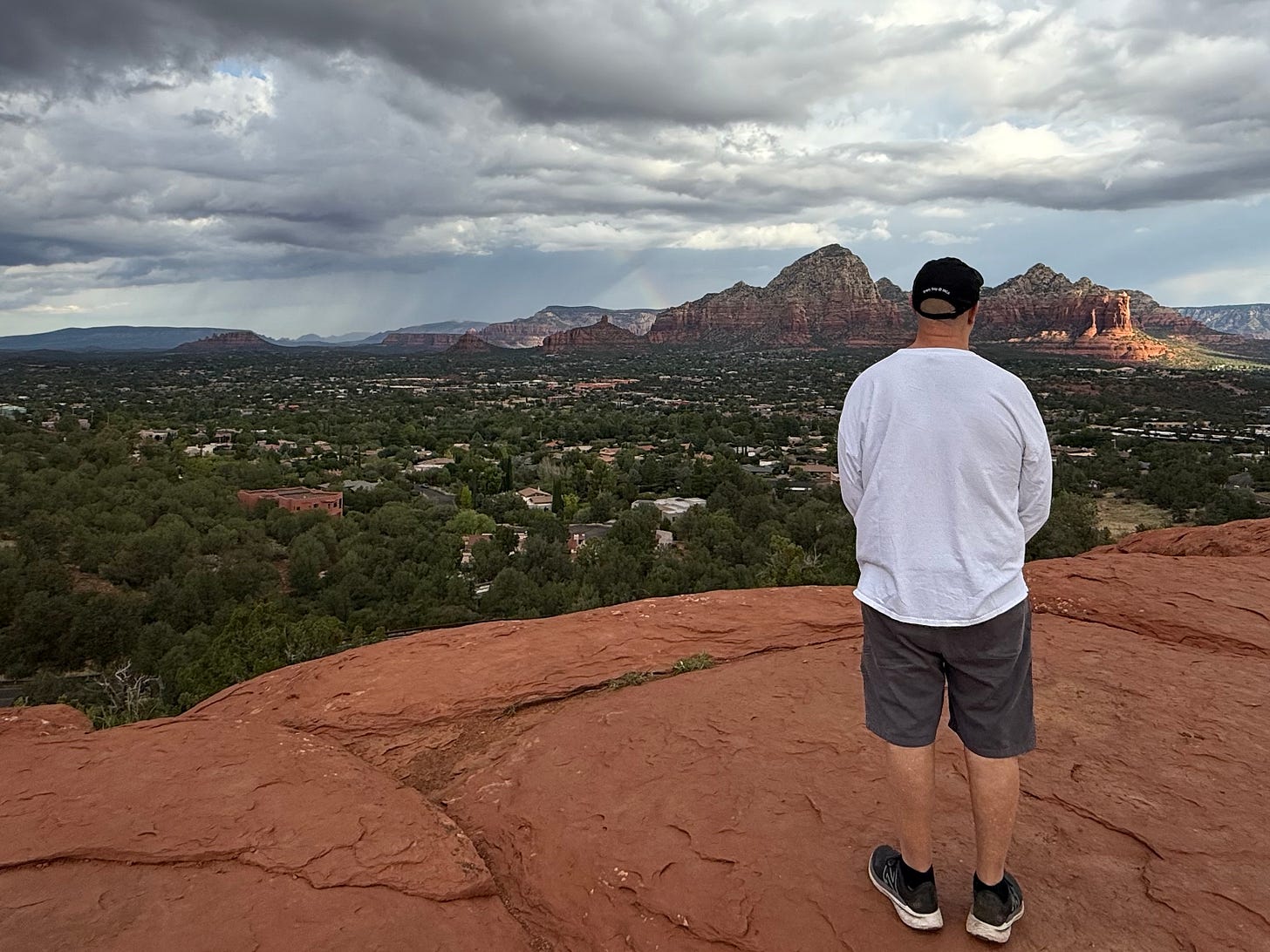I want to tell you a story that I don't tell very often, and for reasons you'll discover as we go.
When I was in my mid-twenties, I was struggling badly. My relationship with alcohol and drugs had me in a dark place, and I wasn't doing well at all. During this time, my mother gave me something that would change everything: a cassette tape of Dr. Wayne Dyer.
For those unfamiliar, Wayne Dyer was a well-known motivational and spiritual speaker who wrote books like Change Your Thoughts, Change Your Life, The Power of Intention, Inspiration: Your Ultimate Calling, and Your Erroneous Zones, the book that first made him famous. He was known for quotes like: "If you believe it will work out, you'll see opportunities. If you believe it won't, you will see obstacles."
I started listening to this tape during my commute to work, taking in Dyer's teachings and over time putting them into practice. Within about six months of consistent listening, my life began to change dramatically. First, I entered recovery and got clean and sober. Then, over the following six to twelve months, my financial situation improved considerably due to various changes I had made.
Why I Don't Tell This Story Often
Here's where it gets complicated. I've become well-versed in the legitimate critiques of manifestation and "law of attraction" thinking, and these critiques give me pause about sharing my experience.
The problems are real:
First, there's the individualization of responsibility. Manifestation teachings often erase structural conditions like poverty, racism, colonialism, and patriarchy by implying that outcomes are purely a matter of mindset. This thinking risks aligning with neoliberal logics of self-optimization.
Second, the universalist metaphysics influenced by New Thought tends to posit universal truths like "thoughts create reality"which runs counter to post-structural emphasis on pluralism, contingency, and situated knowledge.
Third, these teachings can silence suffering. By privileging positive thinking, manifestation can invalidate pain, grief, and struggle. It risks becoming a moralizing discourse where people are told they "manifested" their problems or "blocked" their blessings, deepening shame and blame.
Finally, there's the commodification problem. The contemporary manifestation industry packages spiritual practices into consumable products, reinforcing capitalist logics rather than disrupting them.
I'm deeply aware of these critiques and don't want to promote harmful thinking. But I also can't ignore my own lived experience.
A Post-Structural Embrace of Manifestation
I've come to realize there are some positives we can take from manifestation through a post-structural lens:
Narrative Agency: Manifestation offers people a way of storying themselves into possibility. It resists fatalism and gives language for imagining futures not yet visible. From a narrative therapy perspective, it's a form of reauthoring, structuring one's desires into a coherent, future-oriented storyline.
Performative Force: Post-structuralist thought recognizes that language doesn't just describe reality; it shapes it. Manifesting is essentially speech acts at work, narratives, affirmations, visualizations, and practices that orient our bodies and actions toward certain outcomes.
Hope as Resistance: In contexts of structural discouragement, manifestation can operate as a counter-discourse that restores a sense of possibility. It's less about magical thinking (though magical thinking can be worthwhile at times) and more about nurturing conditions for action by refusing the dominant story of limitation.
The Practice of "Both/And"
I've come to look at manifestation through a lens of "both/and." A post-structural embrace can frame it less as a metaphysical law and more as a discursive practice, a set of stories and rituals that shape how we move, perceive, and act.
In this sense, my mother giving me that Wayne Dyer tape wasn't about buying into a universal truth. It was about borrowing a story that temporarily widened my horizon of possibility. Within that expanded horizon, I was able to act, and I changed my life.
The key isn't to dismiss the structural realities that shape our lives, nor to ignore the privilege that allows some people more room for "manifestation" than others. Rather, it's to hold space for the power of narrative and hope while remaining critically aware of the systems we're operating within.
Sometimes we need permission to imagine differently. Sometimes we need a story that helps us see beyond our current circumstances. And sometimes, that story, however imperfect its packaging, can create the conditions for real change.
Peace.
Have you seen my latest video on the Performative Man?
Also I will be doing consults at the CFI’s Liminal Lab on Patreon. Join me!



Thanks Chris I have a shared experience in which my mother gave me cassette tapes of Ram Dass and Angeles Arian and while I felt better and truly believe I started to think in ways that were helpful.. I was also so frustrated as a young man about how to simply make enough money, provide a future for my self and/or make something of myself. Forward to todays struggles of the young adults I work with as well as watching my three sons navigate your outline is a reminder of a broader way of listening and asking questions and I greatly appreciate it.
Love this, Chris! There is a big difference between wishful thinking (a la The Secret) and holding an image of a future that is pregnant with possibility. I appreciate you honoring both the complexity of pain and struggle, as well as the power of story to widen our horizons without dismissing that reality.